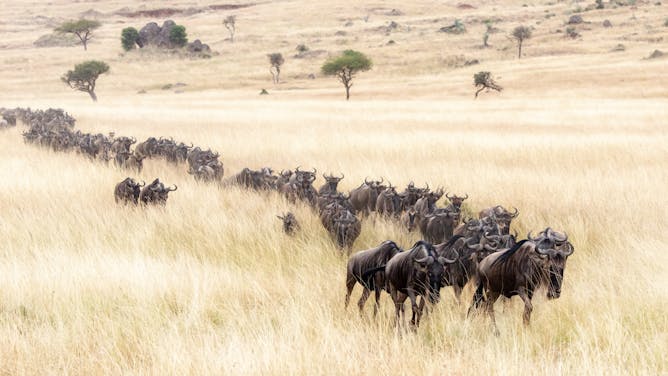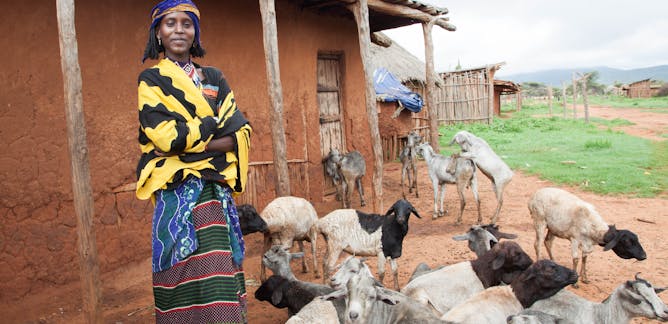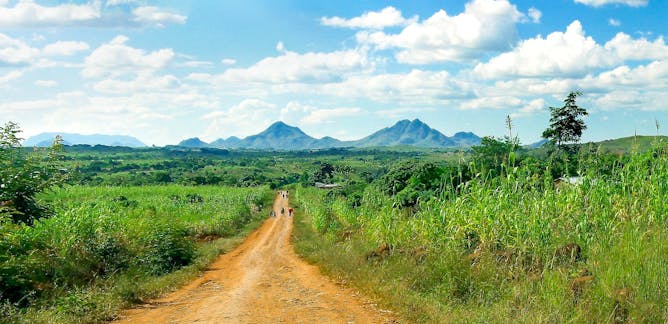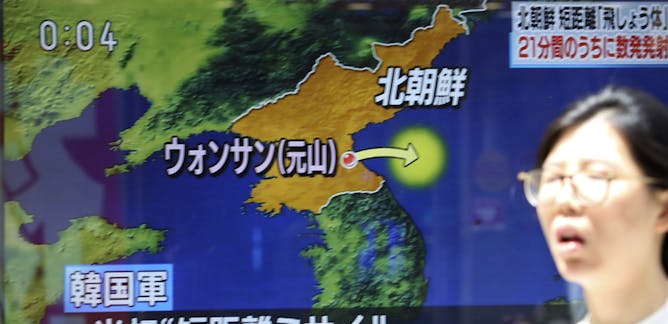|
The world’s most comprehensive report on biodiversity has been released – and it contains a great deal of bad news for our planet. The international assessment found that nearly a million species face extinction without revolutionary change in how humans manage the environment, writes Michelle Lim.
Migratory animals are among those at risk. These species rely on movement to find food, water and safe spaces to give birth. But that movement is being impeded in many places: in East Africa, for instance, wildebeest migrations are collapsing at an alarming rate. Joseph Ogutu explains.
|

The exploitation of the land and sea is the number one reason for biodiversity extinction, according to a new report.
Shutterstock
Michelle Lim, University of Adelaide
The Global Assessment of the Intergovernmental Science-Policy Platform for Biodiversity and Ecosystem Services has some sobering news.
|

White-bearded wildebeest migrate through the Mara.
Jane Rix/Shutterstock
Joseph Ogutu, University of Hohenheim
Four of the five contemporary migrations in East Africa are severely threatened and have virtually collapsed.
|
Politics + Society
|

George Warimwe, University of Oxford
Rift Valley Fever infects millions of humans and livestock in Africa and Arabia. To fight it, scientists are developing a first of its kind vaccine that can be used on humans and animals.
| |

Charles Hankla, Georgia State University
Trump's embrace of bilateralism in trade relations has pernicious long-term consequences, including ratcheting up the odds of violent conflict.
|

Thomas McNamara, Université de Liège
The mere presence of NGOs, no matter their size or aims, inadvertently reduced the legitimacy of local village headmen.
| |

Marshall Rogers-Martinez, University of Southern California
North Korea is a major military threat to the US and its Asian allies, but exactly how powerful are its nuclear weapons? An earth scientist explains why it's hard to answer this question.
|
|
|